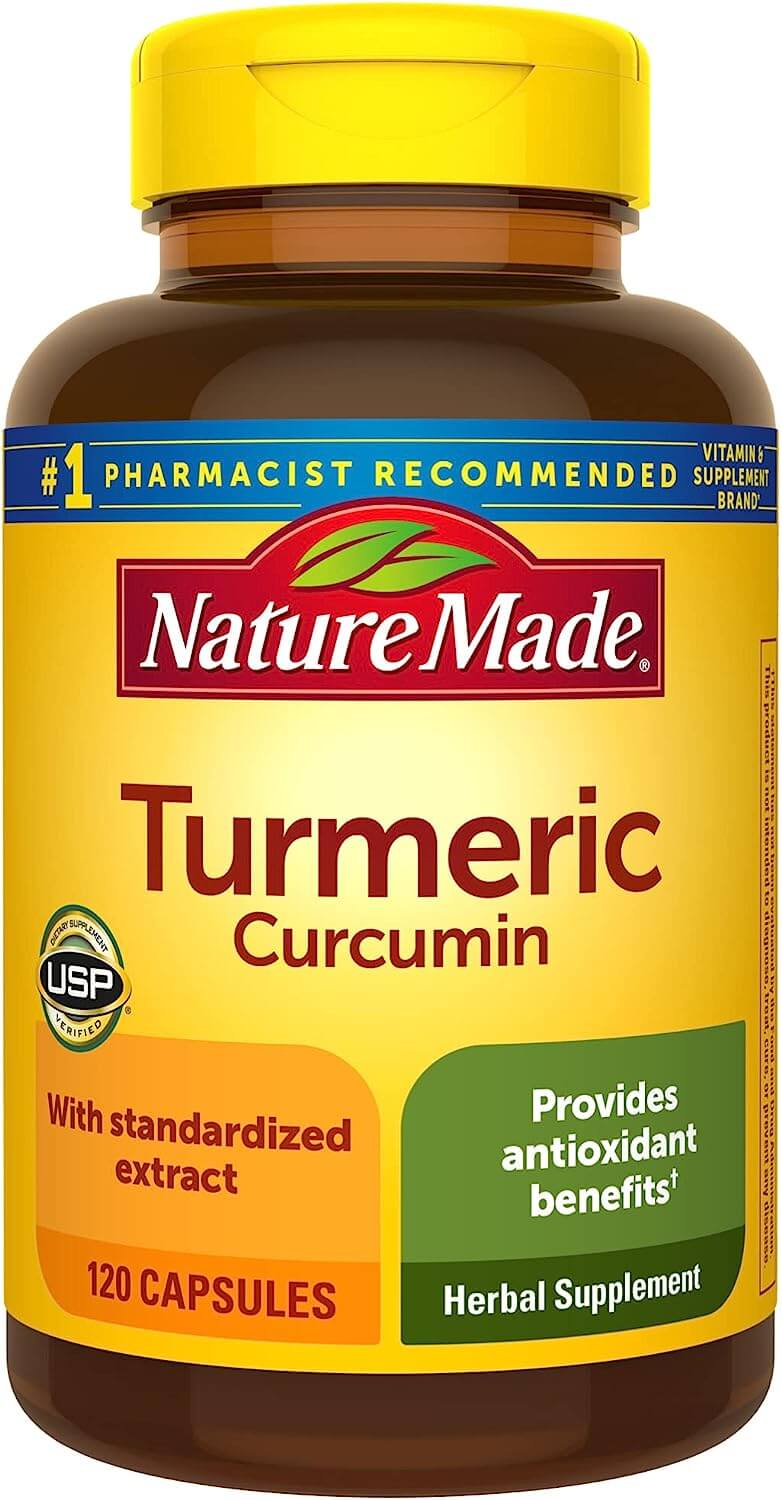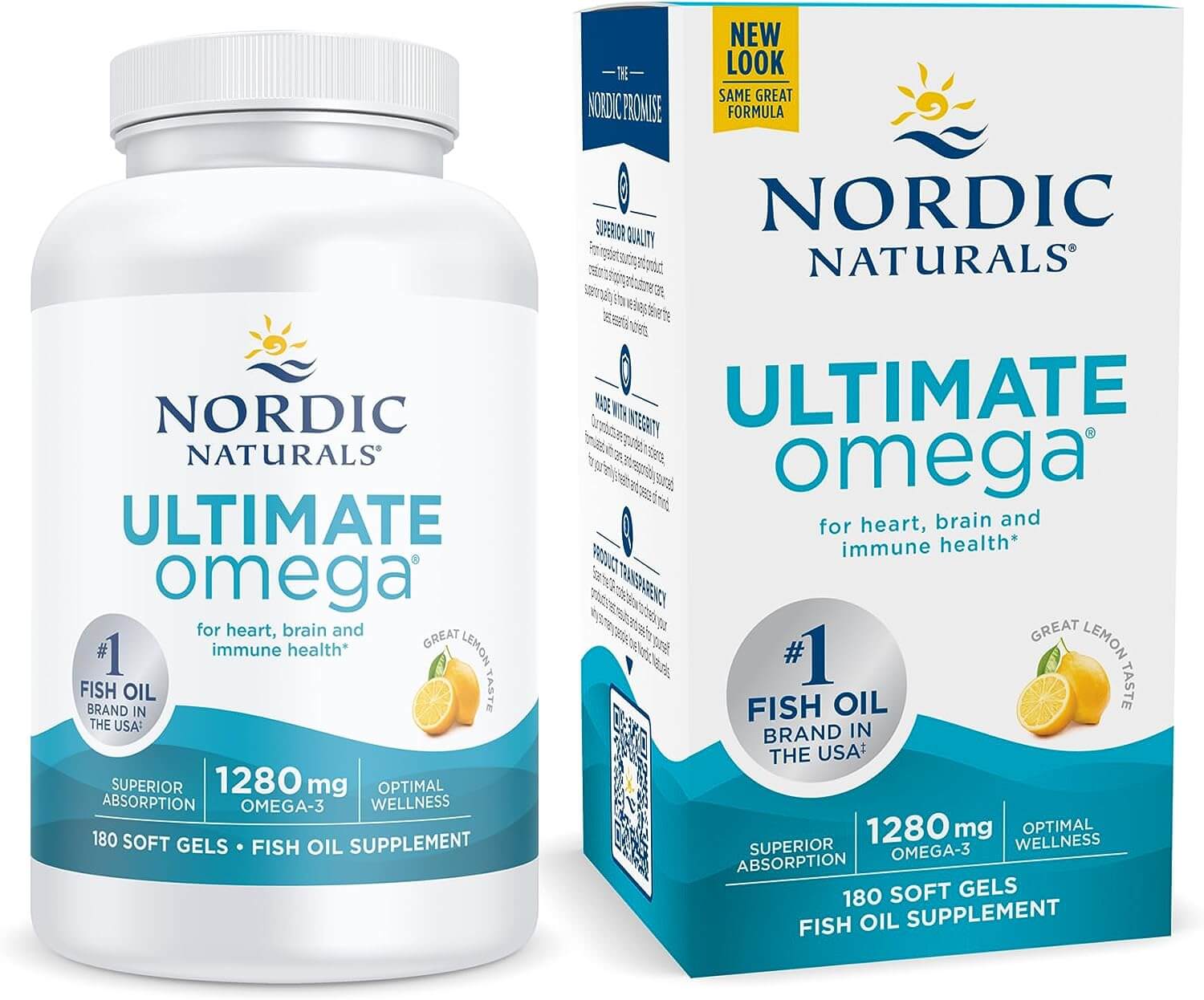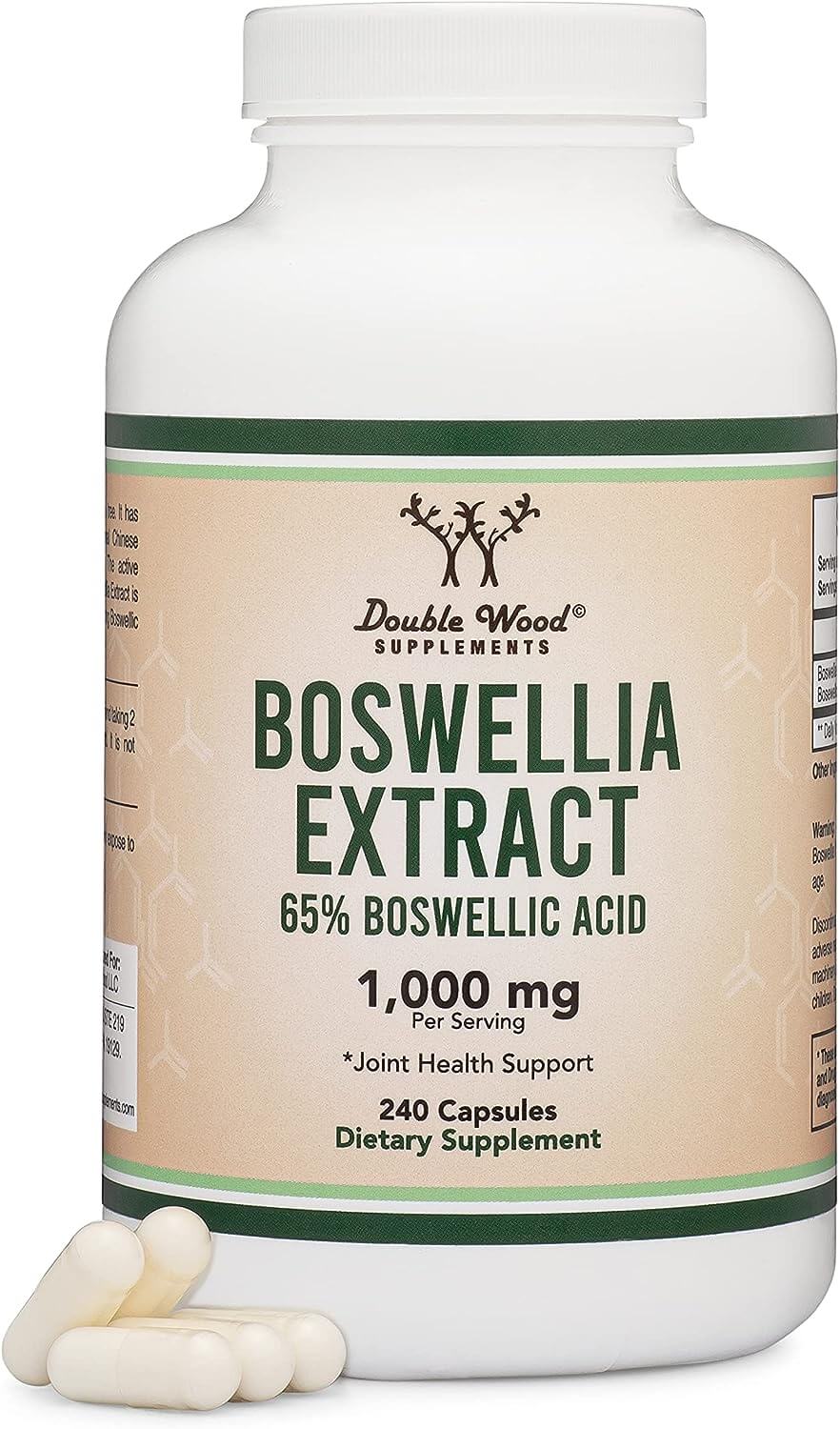There’s no denying we’ve seen rapid advancements in modern medicine. However, for all the progress we’ve made, there are still many areas of science that require a serious overhaul. One of the most overlooked areas includes addressing inflammation. With strong ties to depression, heart disease, arthritis, and Alzheimer’s disease, living in a chronic state of inflammation can be life-threatening. And for many, even the best anti-inflammation supplements may not be enough to counter the negative effects.
So, what is inflammation? Inflammation is our body’s defense mechanism to injury and infection – and yes, it can be both good and bad. Good in the sense that it helps our body fight off foreign invaders, heal wounds, and clean up debris but also bad if it becomes chronic as it can lead to blindness, asthma, diabetes, cancer, atherosclerosis, and more. As a recent study found, life-threatening inflammation is turning COVID-19 into a chronic disease. Additional findings reveal that COVID patients experiencing severe inflammation while in the hospital saw their risk of death skyrocket by 61 percent over the next year post-recovery.
Sadly, inflammation can manifest in various forms. For instance, a study found that foods tied to inflammation can significantly increase heart disease and stroke. Additional discoveries highlight how consuming pro-inflammatory diets can raise heart disease risks by 46 percent while a person’s risk of stroke also increases by 28 percent when eating red meat, processed meat, organ meat, fried foods, refined grains, and sugary drinks like soda. Fortunately for us, we don’t always have to rely on home remedies or medications to reduce inflammation as a newer study found that exercising reduces inflammation by increasing the production of endocannabinoids. Moreover, additional findings reveal that this substance may potentially treat a number of conditions, including arthritis, cancer, and heart disease.
The impact of inflammation reaches beyond physical discomfort—it affects our vitality, energy, and overall quality of life. For these reasons, we’ll be addressing this health hazard head-on by unveiling the best anti-inflammation supplements for your health. From soothing your sore joints to bolstering immunity, discover the best anti-inflammation supplements today. Don’t happen to see your favorite on our list? No worries, tell us more about why it should be below!

The List: Best Anti-Inflammation Supplements, According to Experts
1. Curcumin
Derived from turmeric root, curcumin has healing properties more valuable than its radiant golden hue. More than a spice that colors curry, curcumin is a potent anti-inflammatory that has been used for centuries by botanical healers. As iHerb says, “Found in the spice turmeric and used in Indian cuisine, curcumin offers numerous health benefits due mainly to its antioxidant and anti-inflammatory properties. Additional research suggests it “may help reduce soreness after exercise and help manage inflammatory conditions, including arthritis, hyperlipidemia, and metabolic syndrome.”

In many cases, inflammation is a precursor to various chronic ailments like cardiovascular disease, autoimmune disorders, obesity, neurodegenerative diseases, and more. Fortunately, curcumin is a natural remedy that enhances our body’s ability to modulate the body’s inflammatory response. As Spring-Chiropractic sums up, “Medicinal plants and spices have served as the cornerstone for treating ill health for thousands of years.” For those seeking a “more natural approach to health and to avoid non-steroidal anti-inflammatory drugs (NSAIDs), curcumin is our top natural anti-inflammatory supplement.”
In addition to being an excellent anti-inflammatory, curcumin has the potential to activate the body’s natural defense mechanisms, helping shield against numerous health threats. On top of that, this wonderful supplement even aids in mood regulation and digestion support. As Very Well Health writes, “Studies suggest that curcumin has both anti-inflammatory and antioxidant effects.” In addition to being an anti-inflammatory, “curcumin may help relieve arthritis pain and reduce exercise-induced inflammation and muscle soreness.” Recommended supplemental forms of curcumin include tablet, soft gel, and capsule.
2. Green Tea
Widely considered nature’s elixir, green tea not only warms the soul but also soothes inflammation. As an anti-inflammatory powerhouse, it is one of the world’s oldest natural remedies with usage dating back to the reign of Emperor Shennong in 2737 BC. As Medicalopedia breaks down, “Green tea is the most efficient anti- inflammatory supplement, especially in treating arthritis.” In addition to “reducing inflammation in the digestive tract, green tea will protect you from cardiovascular disease, obesity, diabetes, Alzheimer’s, neurodegenerative diseases, and cancer.” Before using, “consult with your doctor, and they will advise on how and when to use a green tea supplement.”

Renowned for its potential to quell inflammation, green tea’s bioactive compounds scavenge free radicals, support cellular health, and provide a natural defense against oxidative stress. Why is this important? Because oxidative stress underpins chronic inflammation. As iHerb mentions, “Green tea and a compound in green tea called EGCG have a wide array of anti-inflammatory effects and combat many diseases, including diabetes.” Best of all, “green tea has no severe negative side effects when consumed in moderation.”
Green tea effectively combats inflammation by modulating and expressing pro-inflammatory genes. Beyond inflammation, green tea may contribute to a healthier cardiovascular system by promoting healthy blood pressure, cholesterol levels, and even arterial function. As Very Well Health recites, “Green tea is made from the leaves of the Camellia sinensis plant and is known to be a potent antioxidant with anti-inflammatory effects as well.” “Rich in anti-inflammatory compounds called polyphenols, green tea can help reduce inflammation in blood vessels.” Some studies even suggest that “drinking three to five cups of green tea daily can lower the risk of death from heart disease by 41 percent when paired with exercise and a heart-healthy diet.”
3. Vitamins C & D
Vitamins C and D are a dynamic duo, capable of bolstering our immune responses to ensure that inflammation remains balanced. On top of enhancing our overall well-being, these vitamins help maintain the health of issues and promote healing. As FWD Fuel mentions, “Vitamin D plays an important role in the modulation of the inflammatory system while Vitamin C acts as an immune-boosting antioxidant that reduces inflammation, stress hormones, and oxidative stress.” Perhaps more interesting would be how “the production of inflammatory proteins (cytokines) and immune cells are better regulated when Vitamin D levels are optimized.” In other words, “vitamin D serves as protective armor within the body while vitamin C is best used when run down, sick, or preparing to compete in or recover from an intense event.”

Vitamins C and D offer unmatched synergy, where vitamin C enhances the absorption of vitamin D, allowing its anti-inflammatory properties to be amplified. Together, they ensure inflammatory responses remain within healthy parameters. As iHerb breaks down, “Research shows that vitamin C and vitamin D supplementation may reduce inflammation.” Among those with “high levels of inflammatory markers found that taking 500 milligrams of vitamin C twice daily for eight weeks significantly reduced inflammatory markers.” Randomized controlled trials suggest “vitamin D supplementation may improve inflammation and may be particularly helpful if you live in a climate without a lot of natural sunlight.”
Outside of modulating inflammation, these vitamins support skin health, collagen formation, bone strength, cardiovascular health, and more. Best of all, these vitamins can derive from a variety of sources from supplements, fruits, vegetables, and more. As The Thirty states, “Vitamin D helps regulate the production and spread of inflammatory cells while Vitamin C is an antioxidant that can protect the body from damaging free radicals so that they don’t harm your cells, which can lead to inflammation.” To add, “low levels of vitamin D have been shown to increase the risk of infection and is often seen in individuals with chronic conditions.”
4. Omega-3 Fatty Acids
Omega-3 fatty acids are essential for taming and maintaining healthy levels of inflammation. On top of soothing the surface, the essential acids found in Omega-3s seep deep into cellular membranes to signal immune responses that lessen inflammation. As Spring-Chiropractic summarizes, “Omega 3 Essential Fatty Acids (Fish Oils) is one of the top natural anti-inflammatory supplements.” Their organic compounds “have stood the test of time, and it is only recently that we have moved towards man-made drugs as the foundation of our healthcare system.”

Omega-3s don’t only defy inflammation but also combats arthritis, improves heart health, and may help to control lupus and eczema. As a key member of the polyunsaturated fats family, these essential fatty acids act as nourishing agents for our overall well-being while their impact on brain health, cognitive function, and mood regulation underscores their holistic influence. As Rose Wellness simplifies, “Omega 3 fatty acids like those found in fatty fish lower inflammation.” For supplementation, “fish oil supplements contain anti-inflammatory properties while studies have shown that DHA significantly reduces inflammatory markers.”
Omega-3 fatty acids are available in a variety of forms such as plant-based sources, fatty fish, and supplements. Fish like sardines, mackerel, and salmon are rich in omega-3s as are plant-based sources such as flaxseeds, chia seeds, and walnuts. As The Thirty recounts, “Omega-3 fatty acids have potent anti-inflammatory properties that can halt the activation of inflammatory pathways while decreasing cytokine release.” It should be noted that, “omega-3 fatty acids, like DHA and EPA, also support a variety of key functions like heart health, brain health, and eye health.” In the end, “if you don’t consume enough fish or seafood on a regular basis, you may consider fish oil capsules’ benefits to fill in the nutritional gaps.”
5. Boswellia
Amidst the arid landscapes of India and Africa, the Boswellia tree exudes frankincense. And for centuries, this precious resin has been a potent anti-inflammatory supplement. As Springfield Chiropractic writes, “Boswellia serrata (Frankincense) is one of the top natural anti-inflammatory supplements with plenty of scientific evidence showing the safety and effectiveness of these compounds…Unfortunately, there are times when our bodies are unable to overcome these issues.” During these cases, “the medication simply acts to mask the problem.”

Unlike some traditional treatments that suppress beneficial inflammation, Boswellia targets specific triggers, leaving essential immune responses intact. This targeted approach helps to foster an environment of reduced inflammation. As Very Well Health states, “Classified as an Ayurvedic herb, Boswellia is thought to have anti-inflammatory properties and may help relieve pain.” As a supplement, “it is available in capsule and pill form while the common dose is 300 milligrams three times a day.”
From resin extracts to supplements, Boswellia offers a healing touch in the heat of inflammation. In addition to providing solace to achy joints, this powerhouse anti-inflammatory has been shown to alleviate stress and support holistic well-being. As Riverfront Times breaks down, “Boswellia serrata has received scientific attention in the modern day due to its considerable anti-inflammatory properties and has been used for healing purposes since ancient times under the name of frankincense.” Most used “when added to topical products, boswellia is so effective for illness and pain that ancient people considered it worth its weight in gold.”
You may also be interested in:
- Best Natural Fat Burners
- Best Vitamins for Energy
- Best Ways to Lower Cholesterol
- Best Muscle Building Supplements
Sources:
- iHerb
- The Thirty
- FWD Fuel
- Medicalopedia
- Rose Wellness
- Very Well Health
- Riverfront Times
- Springfield Chiropractic
Note: This article was not paid for nor sponsored. StudyFinds is not connected to nor partnered with any of the brands mentioned and receives no compensation for its recommendations.



